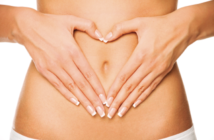by Jonathan Richter, DDS, FAGD
There was a point in our not-so-distant past that when you heard the word charcoal, right away you  thought about what you might be cooking next on your barbecue grill. Now it seems charcoal has grown in popularity—finding its way into everything from supplements to face/body masks and health drinks—thanks to the detoxifying powers that allegedly “grab” onto everything from internal toxins, dangerous chemicals, oil and dirt. While charcoal has been used since ancient times for poisonings (the first historical record is from 8000 B.C. where the Native Americans combined charcoal powder with water to treat stomach ailments), activated charcoal has been used since the 1900s and currently sits on the World Health Organization’s List of Essential Medicines as the most effective and safe medicines needed in a health system. So it’s hardly a surprise that people have latched onto the idea of applying charcoal for cleaner, brighter teeth—taking the original idea from an 1860s home encyclopedia where it described a homemade toothpaste that used ground charcoal. But is it really all it’s cracked up to be when it comes to maintaining your pearly whites in their whitest glory?
thought about what you might be cooking next on your barbecue grill. Now it seems charcoal has grown in popularity—finding its way into everything from supplements to face/body masks and health drinks—thanks to the detoxifying powers that allegedly “grab” onto everything from internal toxins, dangerous chemicals, oil and dirt. While charcoal has been used since ancient times for poisonings (the first historical record is from 8000 B.C. where the Native Americans combined charcoal powder with water to treat stomach ailments), activated charcoal has been used since the 1900s and currently sits on the World Health Organization’s List of Essential Medicines as the most effective and safe medicines needed in a health system. So it’s hardly a surprise that people have latched onto the idea of applying charcoal for cleaner, brighter teeth—taking the original idea from an 1860s home encyclopedia where it described a homemade toothpaste that used ground charcoal. But is it really all it’s cracked up to be when it comes to maintaining your pearly whites in their whitest glory?
Activated charcoal is essentially a form of carbon that’s been treated to make the surface of its particles porous. All of those little nooks and crannies act like magnets for other particles, which it absorbs, allowing all of those unwelcome substances to be swept away when the charcoal is washed off. Even though activated charcoal toothpastes are a rebirth of ancient medicine techniques, researchers at the Creighton University School of Dentistry have concluded that charcoal toothpastes may do more harm than good.
Although effective at getting rid of surface stains on the teeth initially, with continuous use it wears away the tooth enamel, and in time, causes significant loss of enamel, making its way inside to the dentin of the teeth, which is naturally yellow. With each use, surface stains are rubbed off, so is the white enamel of the teeth. As the white enamel is stripped away, it reveals more of the yellow dentin, which may leave them permanently yellow or gray.
The bottom line is: Continuous use of charcoal toothpastes has been proven to cause the very discoloration most people are hoping to ward off when they first start using these products.
In other research, published in the Journal of the American Dental Association, they found there is insufficient clinical and laboratory data to substantiate any of the safety and efficiency claims of the 50 most common charcoal and charcoal-based toothpaste they studied. Their review found no scientific evidence to support any of the cosmetic (whitening) or health benefits (antibacterial, antifungal, antiviral, reduced cavities or oral detoxification), or safety claims of these 50 toothpastes.
Source: Jonathan Richter, DDS, FAGD, of Cariodontal, located at 310 E. Shore Rd., Ste. 101, in Great Neck. For more information or to schedule an appointment, call 516-282-0310 or visit Cariodontal.com.




